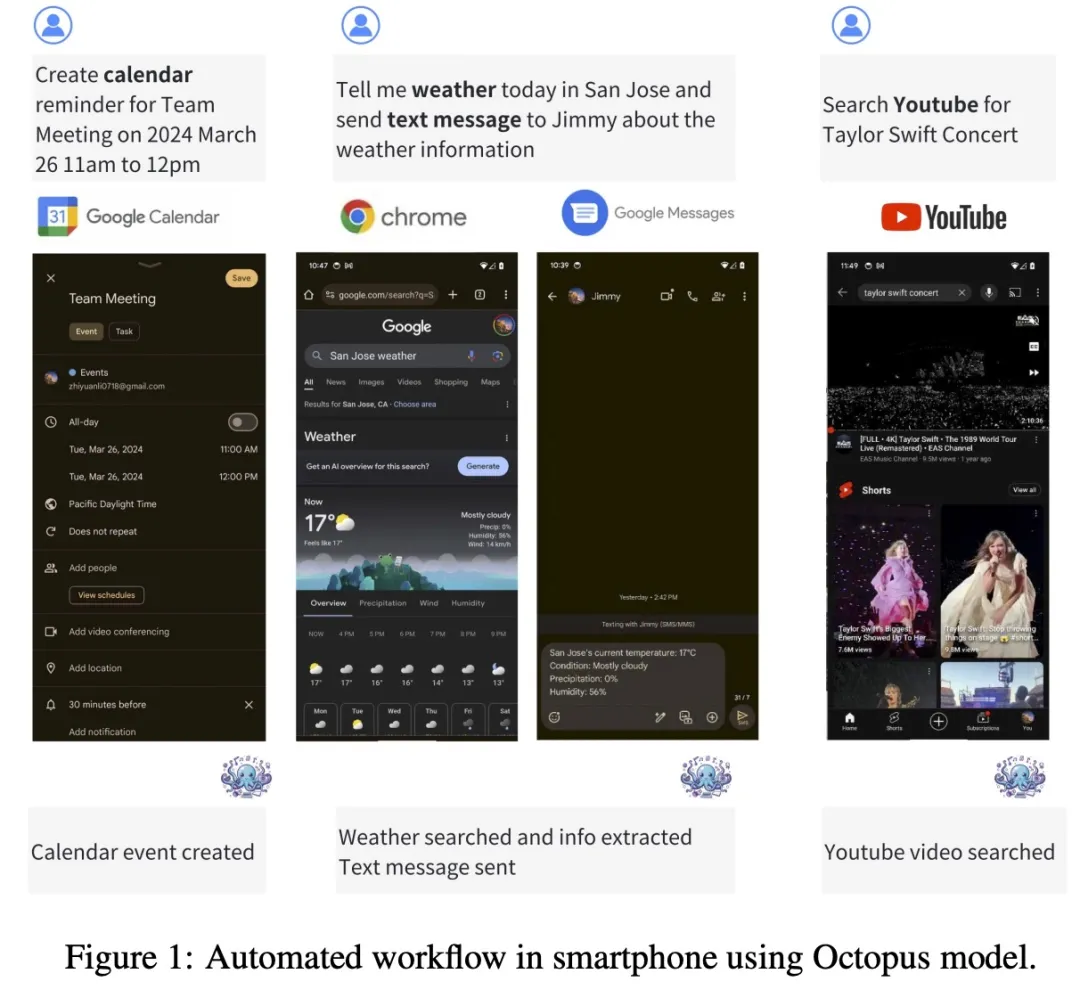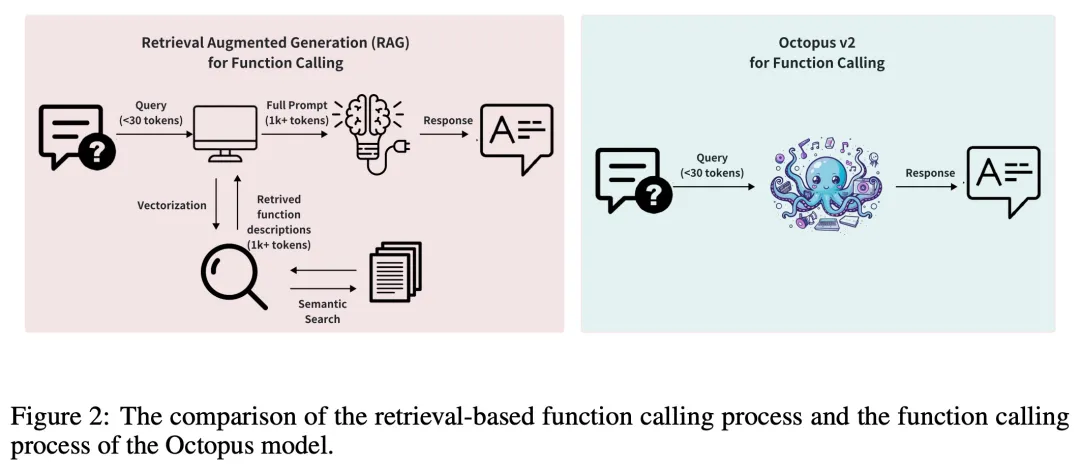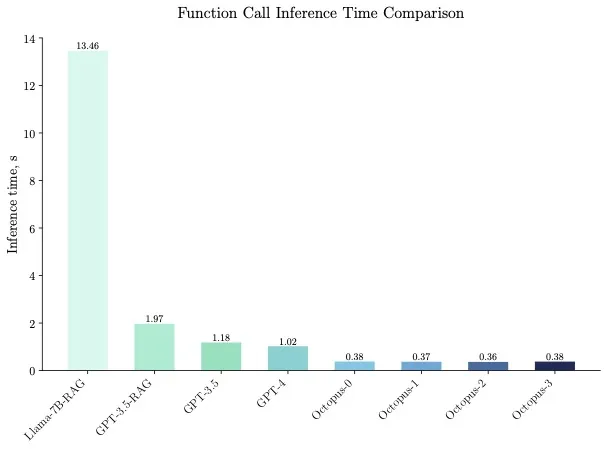在大模型落地应用的过程中,端侧 AI 是非常重要的一个方向。
近日,斯坦福大学研究人员推出的 Octopus v2 火了,受到了开发者社区的极大关注,模型一夜下载量超 2k。
20 亿参数的 Octopus v2 可以在智能手机、汽车、个人电脑等端侧运行,在准确性和延迟方面超越了 GPT-4,并将上下文长度减少了 95%。此外,Octopus v2 比 Llama7B + RAG 方案快 36 倍。
不少网友感叹:设备端 AI 智能体的时代到来了!

- 论文:Octopus v2: On-device language model for super agent
- 论文地址:https://arxiv.org/abs/2404.01744
- 模型主页:https://huggingface.co/NexaAIDev/Octopus-v2
模型概述
Octopus-V2-2B 是一个拥有 20 亿参数的开源语言模型,专为 Android API 量身定制,旨在在 Android 设备上无缝运行,并将实用性扩展到从 Android 系统管理到多个设备的编排等各种应用程序。

通常,检索增强生成 (RAG) 方法需要对潜在函数参数进行详细描述(有时需要多达数万个输入 token)。基于此,Octopus-V2-2B 在训练和推理阶段引入了独特的函数 token 策略,不仅使其能够达到与 GPT-4 相当的性能水平,而且还显著提高了推理速度,超越了基于 RAG 的方法,这使得它对边缘计算设备特别有利。

Octopus-V2-2B 能够在各种复杂场景中生成单独的、嵌套的和并行的函数调用。
数据集
为了训练、验证和测试阶段采用高质量数据集,特别是实现高效训练,研究团队用三个关键阶段创建数据集:
- 生成相关的查询及其关联的函数调用参数;
- 由适当的函数组件生成不相关的查询;
- 通过 Google Gemini 实现二进制验证支持。

研究团队编写了 20 个 Android API 描述,用于训练模型。下面是一个 Android API 描述示例:
模型开发与训练
该研究采用 Google Gemma-2B 模型作为框架中的预训练模型,并采用两种不同的训练方法:完整模型训练和 LoRA 模型训练。
在完整模型训练中,该研究使用 AdamW 优化器,学习率设置为 5e-5,warm-up 的 step 数设置为 10,采用线性学习率调度器。
LoRA 模型训练采用与完整模型训练相同的优化器和学习率配置,LoRA rank 设置为 16,并将 LoRA 应用于以下模块:q_proj、k_proj、v_proj、o_proj、up_proj、down_proj。其中,LoRA alpha 参数设置为 32。
对于两种训练方法,epoch 数均设置为 3。
使用以下代码,就可以在单个 GPU 上运行 Octopus-V2-2B 模型。
评估
Octopus-V2-2B 在基准测试中表现出卓越的推理速度,在单个 A100 GPU 上比「Llama7B + RAG 解决方案」快 36 倍。此外,与依赖集群 A100/H100 GPU 的 GPT-4-turbo 相比,Octopus-V2-2B 速度提高了 168%。这种效率突破归功于 Octopus-V2-2B 的函数性 token 设计。

Octopus-V2-2B 不仅在速度上表现出色,在准确率上也表现出色,在函数调用准确率上超越「Llama7B + RAG 方案」31%。Octopus-V2-2B 实现了与 GPT-4 和 RAG + GPT-3.5 相当的函数调用准确率。

感兴趣的读者可以阅读论文原文,了解更多研究内容。











































